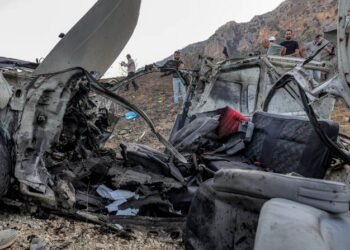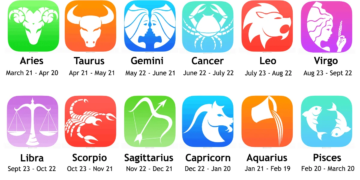In one of the major developments, global leaders announced a multinational rail and ports deal linking the Middle East and South Asia on Saturday on the sidelines of the G20 summit in New Delhi.
G20 welcomes the African union as a permanent member. Meanwhile, US, Saudi Arabia, UAE & India announce a huge rail-ports deal on the sidelines of G20 summit in Delhi. #G20India2023 #AfricanUnion #G20Bharat pic.twitter.com/ljgFkRmCQm
— Tejas Pravin Deherkar (@TJDEHERKAR) September 9, 2023
The pact comes at a critical time as US President Joe Biden seeks to counter China’s Belt and Road push on global infrastructure by pitching Washington as an alternative partner and investor for developing countries at the G20 grouping.
Prime Minister Narendra Modi of summit host India said: “Today, as we embark upon such a big connectivity initiative, we are sowing the seeds for future generations to dream bigger.”
Biden Terms Agreement a Big Deal
Biden said it was a “real big deal” that would bridge ports across two continents and lead to a “more stable, more prosperous and integrated Middle East.”
He said at an event announcing the pact that it would unlock “endless opportunities” for clean energy, clean electricity, and laying cable to connect communities.
Plus Leaders of US, Saudi Arabia, #UAE & #India to unveil a mega rail-ports #connectivity deal on the sidelines of #G20 summit in #Delhi. pic.twitter.com/4jVBCHj7Cm
— Lokendra (@l_chandrawat) September 9, 2023
The deal will benefit low and middle-income countries in the region, and enable a critical role for the Middle East in global commerce, Jon Finer, the U.S. deputy national security adviser, told reporters at the bloc’s annual summit in New Delhi.
The Connectivity
US President Joe Biden listens to the opening remarks of Indian Prime Minister Narendra Modi during the first session of the G20 Summit, in New Delhi.
It aims to link Middle East countries by railway and connect them to India by port, helping the flow of energy and trade from the Gulf to Europe, U.S. officials have said, by cutting shipping times, costs and fuel use.

A memorandum of understanding on the India-Middle East-Europe Economic Corridor, or IMEC, was signed by the European Union, India, Saudi Arabia, the United Arab Emirates, France, Germany, Italy, the US and other G20 partners.
At the heart of New Delhi, #Modi & #G20 leaders converge, crafting the blueprint of global collaboration.
A significant rail and ports deal emerges, but there's more to this story than meets the eye.
Dive deep into the G20's pulse with this thread.#G20Summit2023 pic.twitter.com/SBwQvz9LQn
— Ankeet Patel (@iAnkeetPatel) September 10, 2023
IMEC is envisioned to consist of two separate corridors with an east corridor connecting India to the Arabian Gulf, and a northern corridor connecting the Arabian Gulf with Europe, according to the MOU.
Along the railway route, participants intend to lay cable for power and data lines, as well as pipeline for hydrogen derived from renewable energy for use in power generation.
A Great Opportunity
French President Emmanuel Macron said the pact offers opportunities for manufacturing, innovation and people. “But our intention is to make it real, and to be sure that after this commitment we have concrete results,” he said at the event. No immediate details of the value of the deal were available.

The move comes amid US efforts for a broader diplomatic deal in the Middle East that would have Saudi Arabia recognise Israel.
From the US viewpoint, Finer added, the deal helps “turn the temperature down across the region” and “address a conflict where we see it”.
A Recipe for Economic Activity
The IMEC is expected to stimulate economic development through enhanced connectivity and economic integration between Asia, the Arabian Gulf, and Europe.
The IMEC will be comprised of two separate corridors, the east corridor connecting India to the Arabian Gulf and the northern corridor connecting the Arabian Gulf to Europe. It will include a railway that, upon completion, will provide a reliable and cost-effective cross-border ship-to-rail transit network to supplement existing maritime and road transport routes – enabling goods and services to transit to, from, and between India, the UAE, Saudi Arabia, Jordan, Israel, and Europe.
https://twitter.com/TrendingTweet0/status/1700467282722652495
Along the railway route, participants intend to enable the laying of cable for electricity and digital connectivity, as well as pipe for clean hydrogen export. This corridor will secure regional supply chains, increase trade accessibility, improve trade facilitation, and support an increased emphasis on environmental social, and government impacts.
Increase Efficiencies, Reduce Costs
Participants intend that the corridor will increase efficiencies, reduce costs, enhance economic unity, generate jobs, and lower greenhouse gas emissions – – resulting in a transformative integration of Asia, Europe and the Middle East.
US, India, Saudi, EU unveil rail, ports deal on G20 sidelines:
Multinational rail and ports deal linking the Middle East and South Asia#G20SummitDelhi #G20Bharat #G20India #Beltandroad #China #USA #India #SaudiArabia https://t.co/hYXXS3kr8E— Meanwhile in China (@MeanwhileinCN) September 9, 2023
In support of this initiative, participants commit to work collectively and expeditiously to arrange and implement all elements of these new transit 2 routes, and to establish coordinating entities to address the full range of technical, design, financing, legal and relevant regulatory standards.
The agreement is the result of initial consultations. It sets forth political commitments of the Participants and does not create rights or obligations under international law. The Participants intend to meet within the next sixty days to develop and commit to an action plan with relevant timetables.










 United Arab Emirates Dirham Exchange Rate
United Arab Emirates Dirham Exchange Rate

